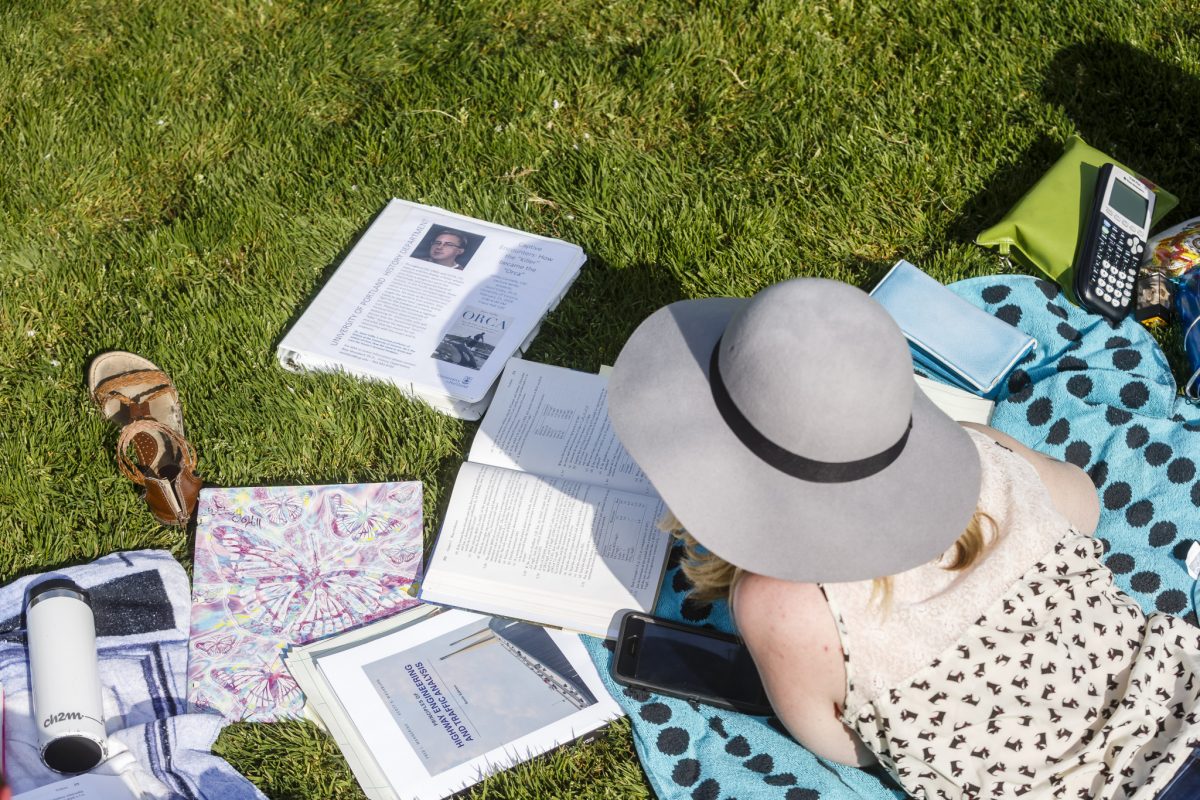Parents and students alike are adjusting to a “new normal.” Many are working or studying from home, transitioning to online formats, and learning how to share space. Students can also find themselves dealing with a sudden sense of loss over favorite activities, time with friends, independence, or those end-of-the-year traditions and events. Having to unexpectedly leave or disengage from their community can feel overwhelming and stressful. Helping students feel heard and supported is a great way that parents can help students dealing with these intense emotions.

Here are some tips provided by the UP Health and Counseling Center for navigating this time and staying well:
- Be patient. Spending large amounts of time in close quarters with others may be challenging for students at this time. Give each other the benefit of the doubt and time to adjust. We are all figuring this out as we go.
- Communication is key. Check in to see how your student is doing and ask if there is anything you can do to support them. Let them know that you are there to talk or listen when they need you.
- Maintain daily routines as much as possible. Motivate your student to keep up with their same school or life routine – “going to class,” doing a virtual “study group,” or making to-do lists.
- Practice healthy habits and self-care. Keep up with workout routines, healthy diet, getting plenty of sleep, and try to get outside once a day for 30 minutes. Activities such as hiking, tennis, bike riding, and walking may be appropriate outdoor activities as long as students maintain a social distance of 6 feet from others.
- Social distancing, not disengaging. Encourage your student to keep in contact with friends, family, clubs, or hobbies through social media, email, text, or video chat.
- Find something to look forward to. Whether it’s a movie night, FaceTime with a friend, or maybe a game night, find something to schedule into the week that gives your student (and maybe yourself) something to look forward to.

In this time of adjustment and uncertainty, it is important that we show we are here to support our students. Show compassion, extend grace, and find the good in things. Look for support when you need it and encourage your student to do the same.
Here are some mental health resources for you and your student during COVID-19:
- Managing Mental Health (JED Foundation)
- Supporting Your Emotional Wellbeing During the COVID-19 Outbreak
- Mental Health and Coping During COVID-19 (CDC)
- Taking Care of Your Mental Health in the Face of Uncertainty (American Foundation for Suicide Prevention)
- Coping with Coronavirus Anxiety
- 10 Ways to Cope with Coronavirus Stress & Anxiety
- Keeping Your Distance to Stay Safe
- Crisis Text Line – This a free, 24/7, confidential text message service for people in crisis.
- Suicide Prevention Lifeline – This is a national network of local crisis centers that provides free and confidential emotional support to people in suicidal crisis or emotional distress 24 hours a day, 7 days a week.
- Protocall – This is a confidential, over-the-phone counseling for students (not accessible for parents). Available nights, weekends, and holidays by calling 503.943.7134 and selecting Option 3. For more information, visit the Health Center webpage.




 Megan Cohara works in the
Megan Cohara works in the  Craig Swinyard Ph.D. ’98 graduated from UP with a degree in mathematics. During his undergraduate days, Craig was actively involved as an RA in Villa Maria Hall during his junior and senior year. Craig returned to The Bluff in 2008 as a faculty member in the mathematics department and continues to teach in addition to his role as Director of Alumni & Parent Relations.
Craig Swinyard Ph.D. ’98 graduated from UP with a degree in mathematics. During his undergraduate days, Craig was actively involved as an RA in Villa Maria Hall during his junior and senior year. Craig returned to The Bluff in 2008 as a faculty member in the mathematics department and continues to teach in addition to his role as Director of Alumni & Parent Relations.